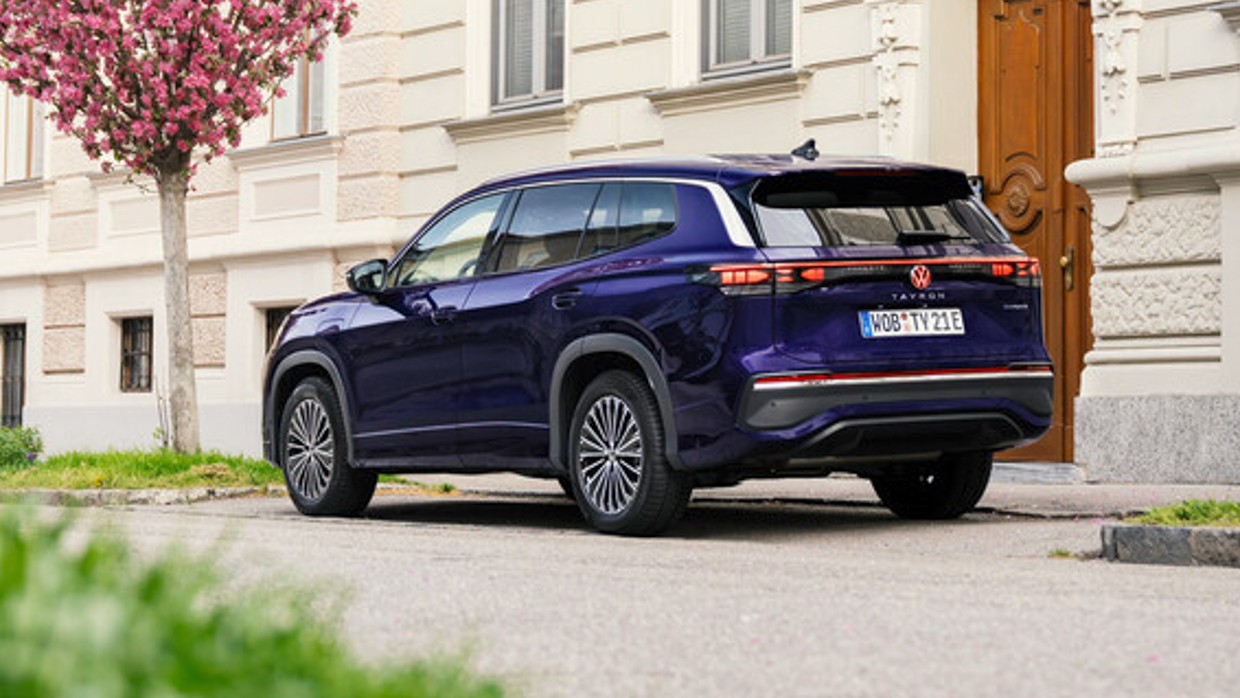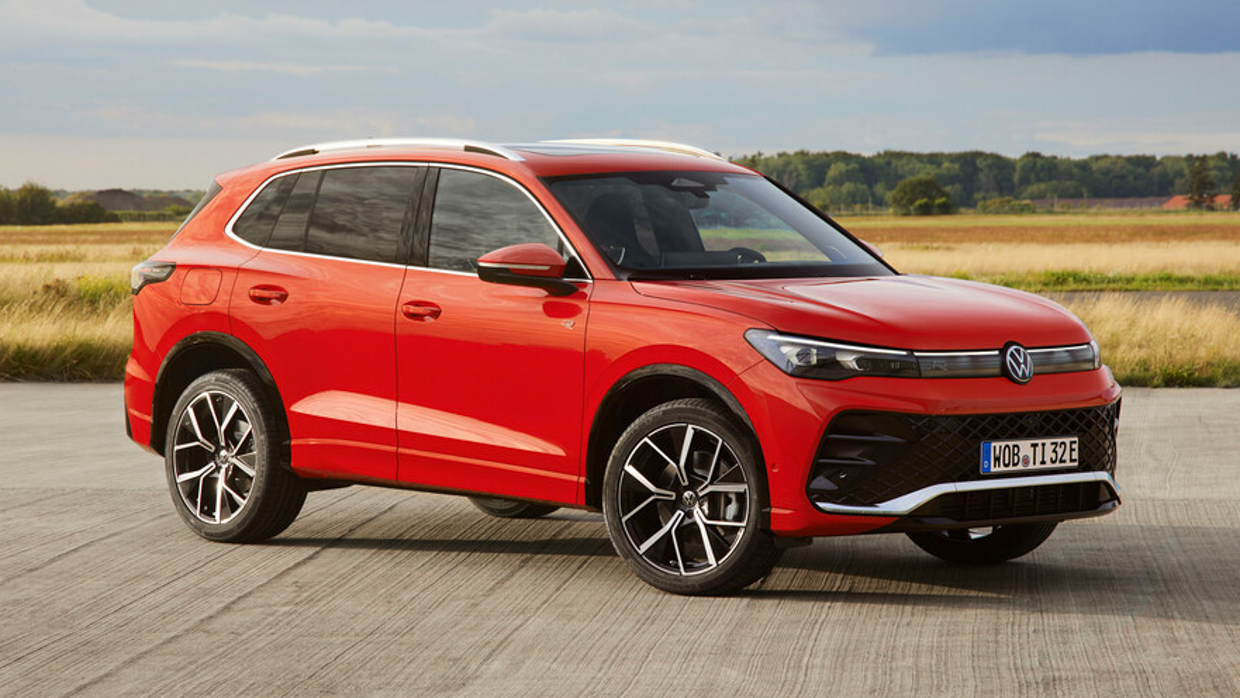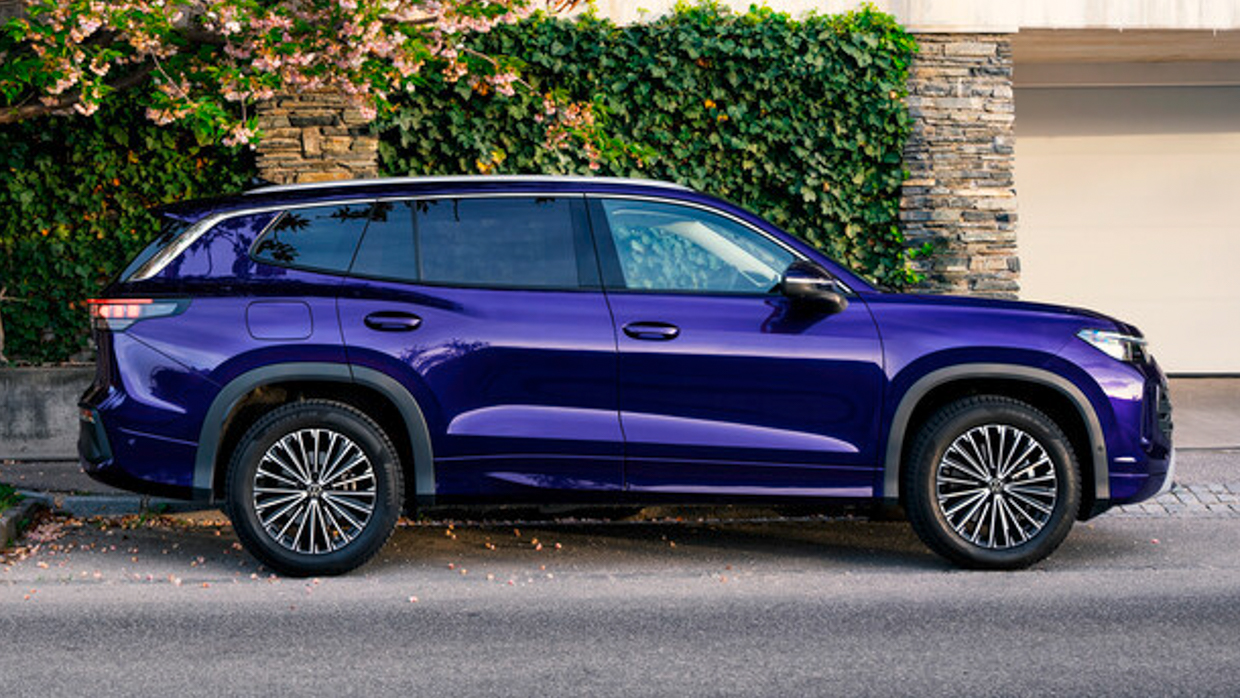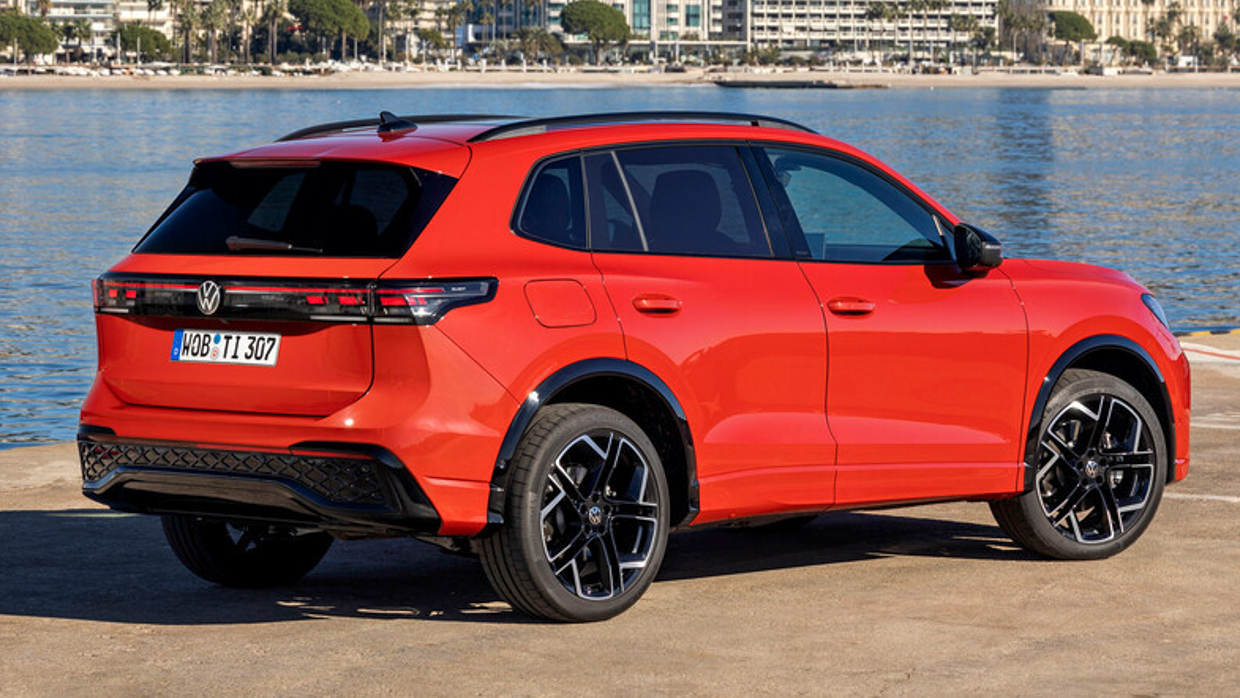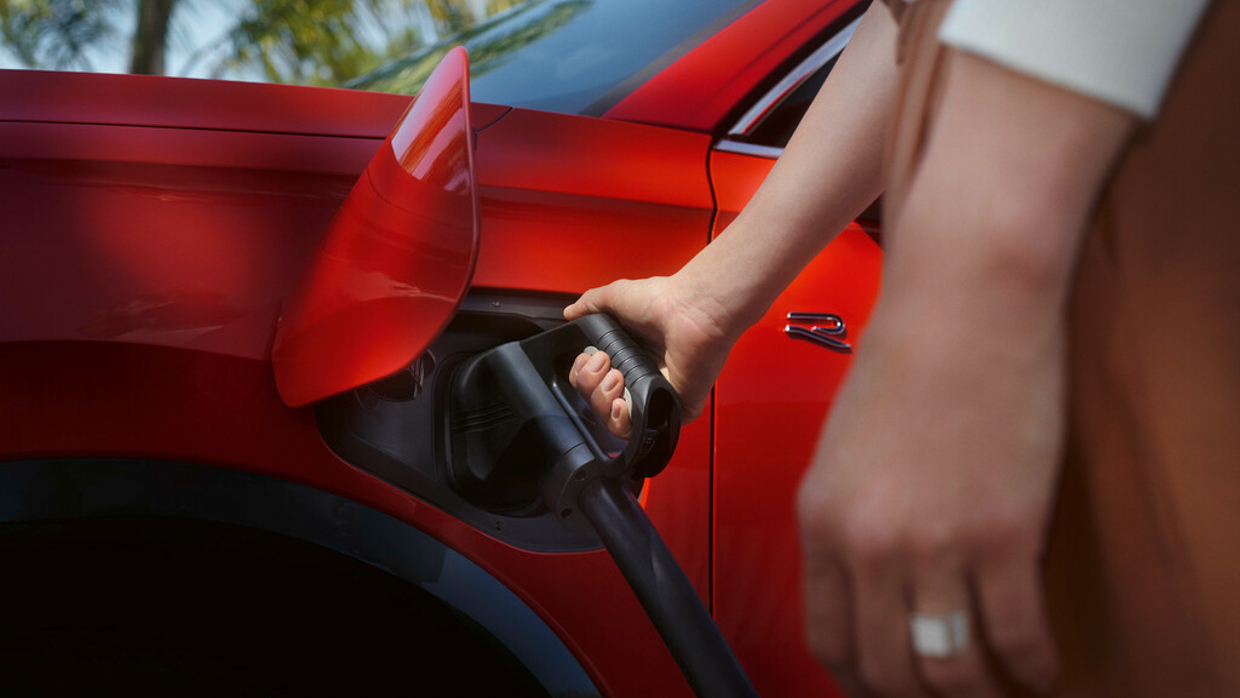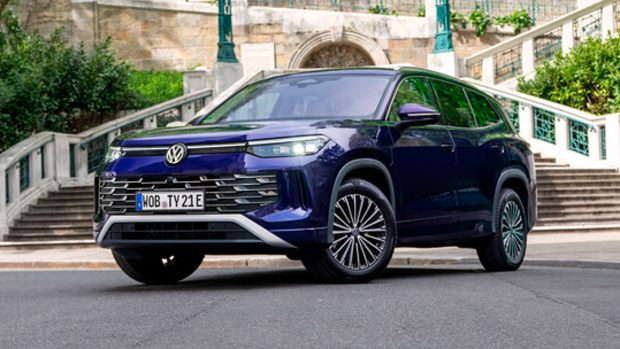-
Car Reviews
- Car News
-
Car Comparisons
Latest comparisons
- Chasing Deals
Confirmed plug-in hybrid SUVs will deliver over 100km of range, choice of 150kW or 200kW of power and fuel-sipping economy on a dead battery
Volkswagen will add two plug-in hybrid (PHEV) powertrains to its Tiguan five-seat and Tayron seven-seat SUV lineups in Australia next year, with first deliveries of the PHEV versions slated to take place in the first half of 2026 in two different power outputs and in two trim grades.
Under the skin, the third-generation Tiguan and first-gen Tayron are similar vehicles mainly differing by their length and seat count (4539mm vs 4792mm), with the latter model a replacement for the Tiguan Allspace.
When the PHEV versions of the Tiguan and Tayron land locally, they will complete a holistic offering of powertrain choices for Australian Volkswagen buyers, slotting between the existing, non-hybrid turbo petrol choices and the battery electric (BEV) Volkswagen ID.4.
Crucially, the pair of plugged Tiguans and Tayrons will give Volkswagen a massive boost in terms of New Vehicle Efficiency Standard (NVES) compliance as their official CO2 figures are likely to fall well under 50g/km, far below the 173-194g/km produced by petrol Tiguans.
Key rivals will include the BYD Sealion 6 ($42,990-$52,990 plus on-road costs), Mitsubishi Outlander PHEV (facelift pricing TBA), and the next-generation Toyota RAV4, which will add a PHEV option for Australia.
Until this week, Volkswagen executives had avoided being drawn on the question of whether VW’s Australian dealerships would host PHEVs. In past years, there had been a view that Australian customers may jump straight from petrol to electric—but hybrid demand has ticked up of late.
“Like with the ID.4, we had to get the right package and product for Australian customers, and the right timing as well. We believe that timing is early 2026—in the first half,” said Arjun Nidigallu, head of product for Volkswagen Australia.
Local Volkswagen bosses are understood to have argued hard with head office to bring the PHEVs to Australia—including about an intention to keep the ‘sweet spots’ of the Tiguan, Tayron and electric ID.4 ranges as close as possible to the $60,000 mark.
The decision awaited a business case being approved but was also held up, to a degree, by the need to test the PHEV powertrains locally—a process cousin brand Skoda has also been engaged in for the release of the Kodiaq PHEV large SUV that is closely related to the VW Tayron.
“All the testing we have done has been extremely positive, and therefore we have decided to release the PHEV powertrains,” said Volkswagen Australia brand director Piergiorgio Minto.
Volkswagen Australia has been successful in nabbing both PHEV powertrains available for the Tiguan and Tayron in Europe. Plug-in tech is available in two states of tune, both with front-wheel drive. A lower-power unit makes 150kW combined while a higher-power version makes 200kW.
Both PHEV systems are underpinned by a 1.5-litre ‘TSI’ turbocharged petrol four-cylinder engine making 110kW/250Nm. The 150kW PHEV adds an 85kW/330Nm motor while the hotter 200kW version utilises a stronger 130kW/250Nm petrol engine but the same 85kW/330Nm e-motor.
No all-wheel drive version of the Tiguan PHEV or Tayron PHEV is available in Europe. However, upmarket Volkswagen Group marque Audi has introduced a 270kW AWD PHEV powertrain—technology which might flow to the VW crossover in future, perhaps with less power.
Each plug-in uses a 25.7kWh battery (19.7kWh usable) providing an electric-only range of between 111km-129km (WLTP) depending on variant, equating to electricity consumption of 16.7-18.9kWh/100km.
Volkswagen quotes a total fuel range of over 900km for the PHEVs from the battery and 45-litre petrol tank, implying that their fuel economy once the traction battery is exhausted is around 5.8L/100km—being fairly similar to old TDI diesel versions of the Tiguan.
The existing petrol versions of the Tiguan are priced between $44,990 and $70,490 before on-road costs, with the larger Tayron commanding a narrow premium with $48,290-$73,490 list pricing.
Product boss Arjun Nidigallu confirmed that the PHEV powertrains will be available in mid-spec Elegance and top-shelf R-Line trim for the Tiguan and Tayron. Hypothetically, pricing could start from the low $60,000 range for a Tiguan 150 PHEV Elegance.
In the past, PHEVs have attracted a considerable price premium over their non-hybrid siblings, but the impact of Australia’s NVES laws heavily incentivises carmakers to convince buyers into plug-in hybrids due to their low CO2—so pricing can’t be too steep.
“In the premium SUV segment, where we have the ID.4, ID.5, Tiguan, and Tayron, we will cover powertrains and price points—and that $60,000 mark is where we want to have the sweet spot,” said Mr Nidigallu.
Latest news
About Chasing cars
Chasing Cars reviews are 100% independent.
Because we are powered by Budget Direct Insurance, we don’t receive advertising or sales revenue from car manufacturers.
We’re truly independent – giving you Australia’s best car reviews.
